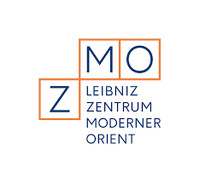Zusammenfassung
- Was Call For Papers — „Making Sense of Climate Change – Models, Cosmologies and Practices from North Africa and the Middle East"
- Wann to (Europe/Berlin / UTC200)
- Wo Berlin
- Termin herunterladen iCal Datei herunterladen
Beschreibung
The effects of global warming on agriculture and water supply, fisheries, urban areas, coasts and many other human and non-human systems have so far been researched and assessed mainly by international organizations like the World Bank, development organizations or policy-oriented think-tanks, often linked to development projects and/or schemes of financialisation (Kloos 2013, Worldbank 2013, Bucknall 2007, Croituru 2010). While such institutions warn against increased droughts, water and food shortages, such political and security discourses frame global warming primarily as a “threat scenario”, linking it directly to conflicts and increased migration (Scheffran 2012, Schubert 2007, White 2011, Wodon 2014). Scholars have warned against adopting such a "security-focused scholarship" and called to take into account the complex and multi-dimensional nature of conflicts and migration (Lawson 2019, Barnes 2018, Klepp 2017).
We invite scholars from a range of disciplines, including the humanities, social sciences and Middle Eastern studies to explore the wide range of issues connected to climate change in the Middle East and North Africa, for example: Which political, economic or environmental consequences does, or will, global warming have in the region? How isthe issue discussed in the region at different scales such as academic research, policy-making or on an everyday basis, and how do different social actors relate to climate change discourses? Which impact do scenarios and predictions of global warming have on their lives and future-making practices? Which scales and temporalities are present in these debates? Which demands and positions are articulated by people directly affected by or dealing with the early or previewed impacts of climate change? Which forms of resistance and contestation are emerging, to which notions of justice, responsibility and power do they relate?
Taking up recent calls to "decolonize" conceptions of climate knowledge, we also invite scholars to reflect on and think beyond 'western' expert knowledge of climate science: How are we ourselves dealing with the complexity and abstractness of computer-based models predicting and 'fixing' the future? What could other approaches to 'climate science' look like?
Through discussing these and other questions, this exploratory and interdisciplinary workshop (held at Leibniz-Zentrum Moderner Orient, Berlin, on June 8-9, 2020) aims at a critical reflection on the knowledge produced on these issues while neither neglecting the importance of the impacts of global warming nor uncritically adopting catastrophic scenarios or calls for technological solutions and increased control.
We welcome papers presenting case studies as well as theoretical reflections based on original research. If interested in participating, please send a one-page abstract, including your professional details and a contact address, to Juliane Schumacher (j.schumacher@jpberlin.de) and Katharina Lange (katharina.lange@zmo.de) until October 20, 2019.
Kontakt
Nähere Informationen
Katharina Lange und Juliane Schumacher
katharina.lange[ at ]zmo.de und j.schumacher[ at ]jpberlin.de

